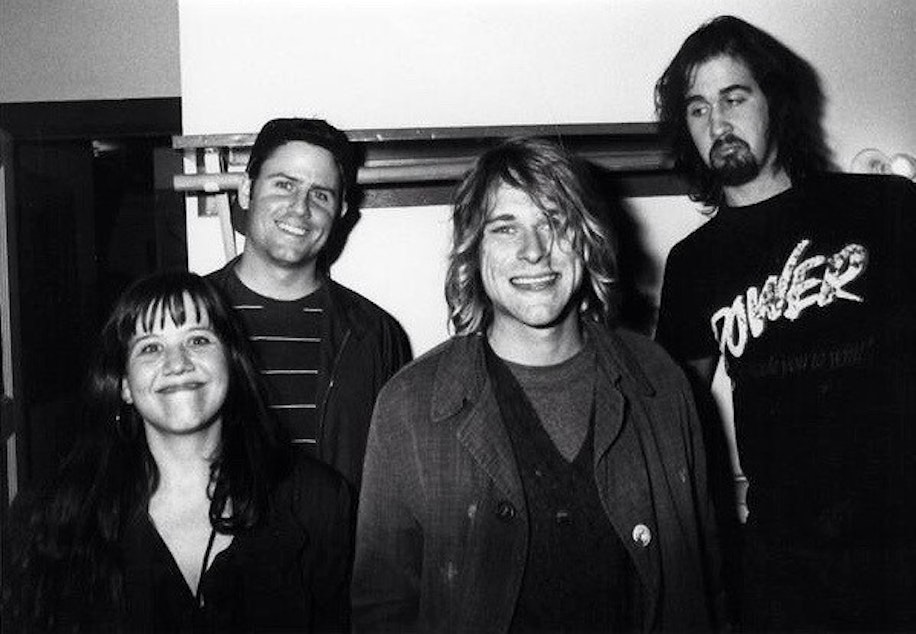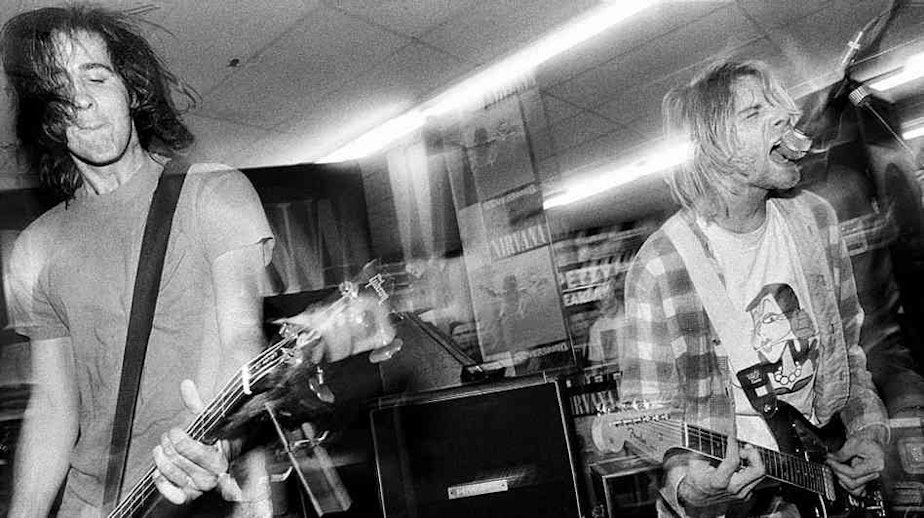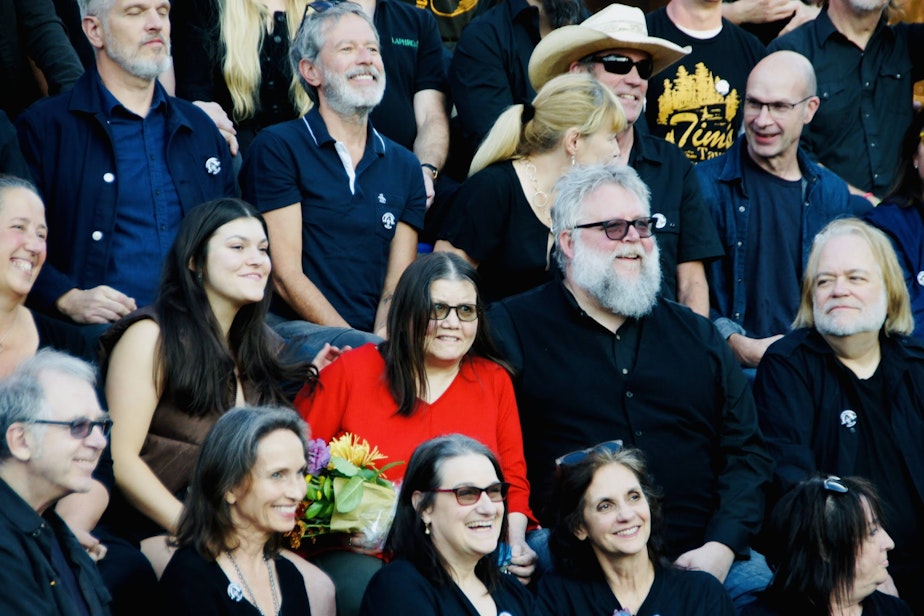'The bright shining sun of Seattle music,' why everyone loved Susie Tennant

The Seattle music scene wasn't always a happy, upbeat place in the 1980s and 90s. The grunge world often veered toward darkness, death, disease, and drug problems, recalled Charles R. Cross, longtime editor of The Rocket, a popular biweekly music magazine that was prominent in the era. But one person had the unique ability turn those angsty rockers toward joy and love — music promoter Susie Tennant.
“She brought such a positive and upbeat attitude to everything that she did,” Cross said. "She was the most passionate promo person that I'd ever encountered. When when she got behind a record, she was really behind it."
Tennant, who championed Nirvana and other well-known and lesser-known bands as a promoter for Sub Pop Records, then for DGC Records, died last week from a rare form of early onset dementia at the age of 61.
Cross said his most treasured memories of encountering Tennant were at shows in the 80s and 90s when he would hear Susie scream his name from across the floor, and see her run to him, and give him an energetic hug.
“When you meet people that love music, love bands, love going to shows, it's like you're in a special tribe,” Cross said, ”and that was a very small tribe in Seattle music in the late 80s and early 90s. Anyone that was around Susie got good will just by being associated with her because of the strength of her personality.”
Tennant was a universally beloved figure in the music scene, Cross said, at a time when it was easy to make enemies, join exclusive cliques, and sacrifice friendships because the stakes were so high and so many musicians were vying for that limited space.
Sponsored
Cross remembers Tennant as being above all that.
"She was a supporter in every way. She went to people's shows, she talked up bands, and she danced," said Cross, who remained lifelong friends with Tennant, including the last 15 years when she was diagnosed with ovarian cancer and then frontotemporal degeneration, a form of dementia that Tennant attributed to her cancer treatment.
"Her love for music and love for these bands was infectious to everyone around her," he said.
Tennant was perhaps best known for her promotion of Nirvana. She famously helped organize the band's 1991 "Nevermind" release party at Re-bar in Seattle.

Sponsored
Cross, who attended that party, said Nirvana originally wanted to hold the album release party at Bob's Java Jive in Tacoma, but Tennant, realizing the logistic challenges of that venue for Nirvana's growing Seattle fanbase, talked the band into holding the party at Re-bar.
Recalling that night, members of Nirvana told Cross that they were kicked out of their own release party after they started a food fight. The party then moved to Tennant's house, where Kurt Cobain donned one of Tennant's dresses.
"She loved Nirvana and they loved her more than any person they ever dealt with in their entire career," Cross said. “Without Susie Tennant, without any doubt Nirvana wouldn't have had success as quickly as they did."
Another Seattle-area band, The Supersuckers, even wrote a song about Tennant called "Juicy Pureballs."
Sponsored
Tennant's charisma, positivity, and charm helped her succeed as a promoter, because she was able to win over radio hosts and programmers.
"Promo people in that era had a huge impact on what was played," Cross explained. "If radio programmers liked you, you could move an unknown act, you could move the needle with it and break that act. Susie broke a lot of acts by her undying support of the people she worked with and that's why so many people have come forward to honor her after her death."
Tennant had support not only during her time as a music promoter, but also during her extended illness, first with ovarian cancer and then with dementia.
Cross remembered an event honoring Tennant called "A Great Day for Susie" that was part of a larger project documenting the Seattle music scene called "As Many Weirdos as Possible." One-hundred of the biggest names in the Seattle music scene showed up at the EMP (now MoPop) for a celebratory photo with Tennant.

Sponsored
While people have a tendency toward hyperbole when it comes to recounting someone after their death, Cross said he is not exaggerating when he calls Tennant "a force of love, brightness, and positivity in life."
He said her legacy deserves attention, her death is everybody's loss, and the way she approached life should a lesson for the rest of us.
"If you embrace something you love passionately and you put yourself into it and work both in it professionally and put it forward personally, you can change the world," Cross said. "Susie's love of music, and particularly of some Seattle bands did that. That itself is a remarkable story."

Susie Tennant is survived by her husband, Christopher Swenson, and her children Ella and Eli.
Sponsored
Details of a forthcoming memorial service will be posted on the Friends of Susie Tennant Facebook page. The family asks that any donations in Tennant’s name be sent to Seattle Musicians Access to Sustainable Healthcare (smashseattle.org), Seattle Musicians for Children’s Hospital (smoochforkids.com), MusiCares (musicares.org) or The Association for Frontotemporal Degeneration (theaftd.org).





